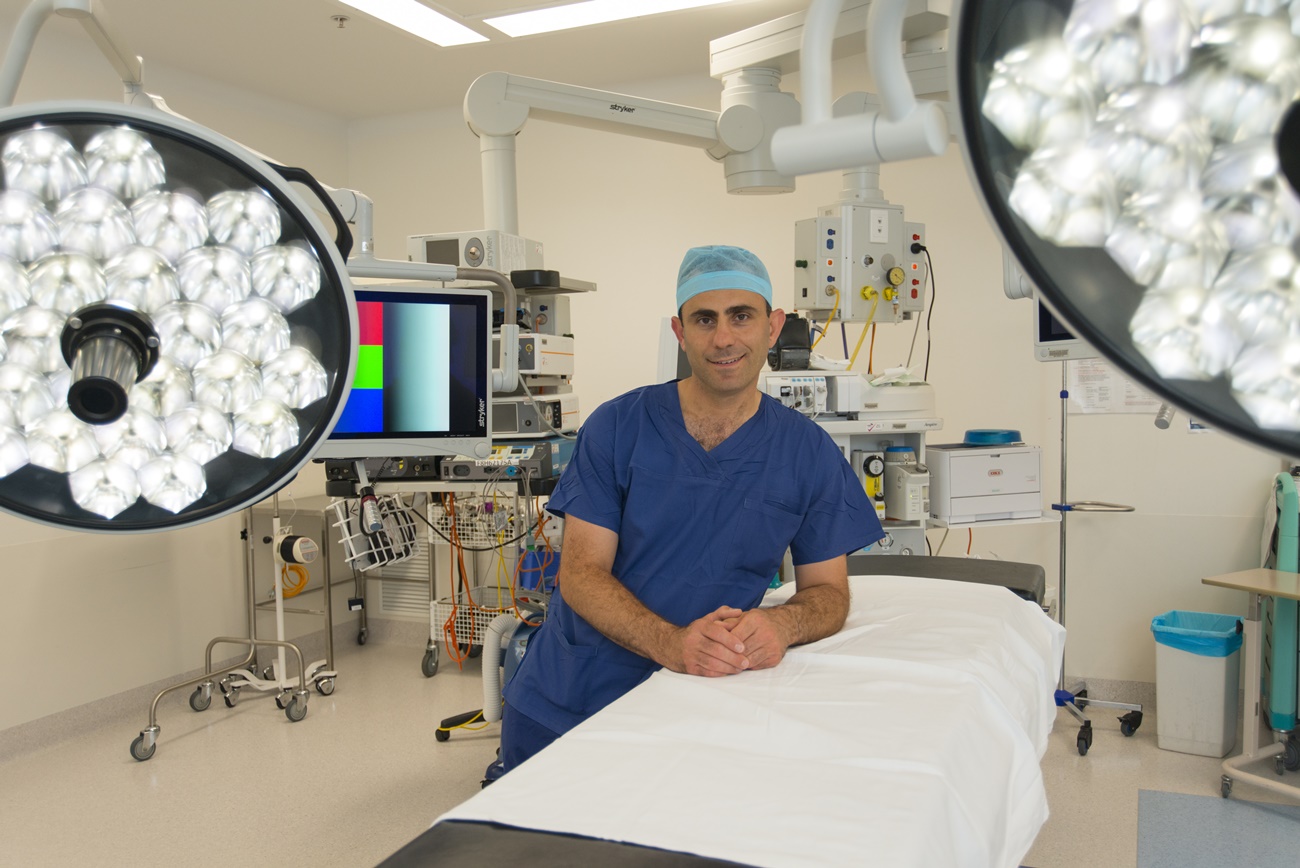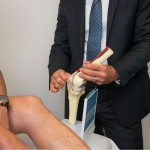
Surgical replacement of the knee has a high success rate in relieving pain and restoring mobility for those with arthritis. About one in four patients over the age of 65 has a form of arthritis, commonly a result from wear and tear, or Osteoarthritis. This is when the cartilage in a joint wears away or becomes damaged exposing the underlying bone, leading to pain, stiffness and swelling.
Although commonly found in older patients, arthritis can be influenced by a number of risks for people of all ages. Factors such as weight, gender, family history, trauma and injuries, or other forms of arthritis such as rheumatoid can all increase the risk of developing arthritis and determine the need for total knee replacement. Learn more about these risks here.
Do I require a knee replacement?
The knee is particularly prone to arthritis as it is a weight bearing joint which absorbs most of the impact when we partake in any activity such as walking or athletics. If you experience knee pain on a regular occurence or your mobility is affected, you might require a total knee replacement. This decision can only be made by the patient, and can depend on a number of factors such as the patients level of symptoms or mobility. Conditions that impact functionality can ultimately impact on your quality of life when everyday activities such as walking becomes difficult.
Although being the patient’s decision, Dr Shidiak will provide the best professional advice based on clinical examination and presentation, as to whether you should consider a total knee replacement.
The process
This is a major surgical procedure that removes the damaged cartilage and replaces the ends of both bones with a metal implant. In between the two metal implants is a highly resistant plastic forming an articulation between the metal and plastic. As the bone ends are no longer in contact, this will eliminate the pain and improve functionality.
Recovery after knee replacement surgery requires rehabilitation. In most cases, patients should allocate up to six weeks recovery time to begin walking freely again. That being said, it may be up to six months before the knee feels close to normal again. By this time you should be able to resume low impact activities such as walking, swimming, cycling, bowling or yoga. Studies show that knee replacement implants have a 93 per cent success rate at 17 years. Some implants have been recorded to last more than 25 years.
If you wish to relieve your pain or improve your mobility, knee replacement surgery might be the most appropriate solution for you. Please get in touch with with us at 02 9806 3333 to arrange for a consultation with Dr Shidiak to discuss what type of surgery is best for you.


